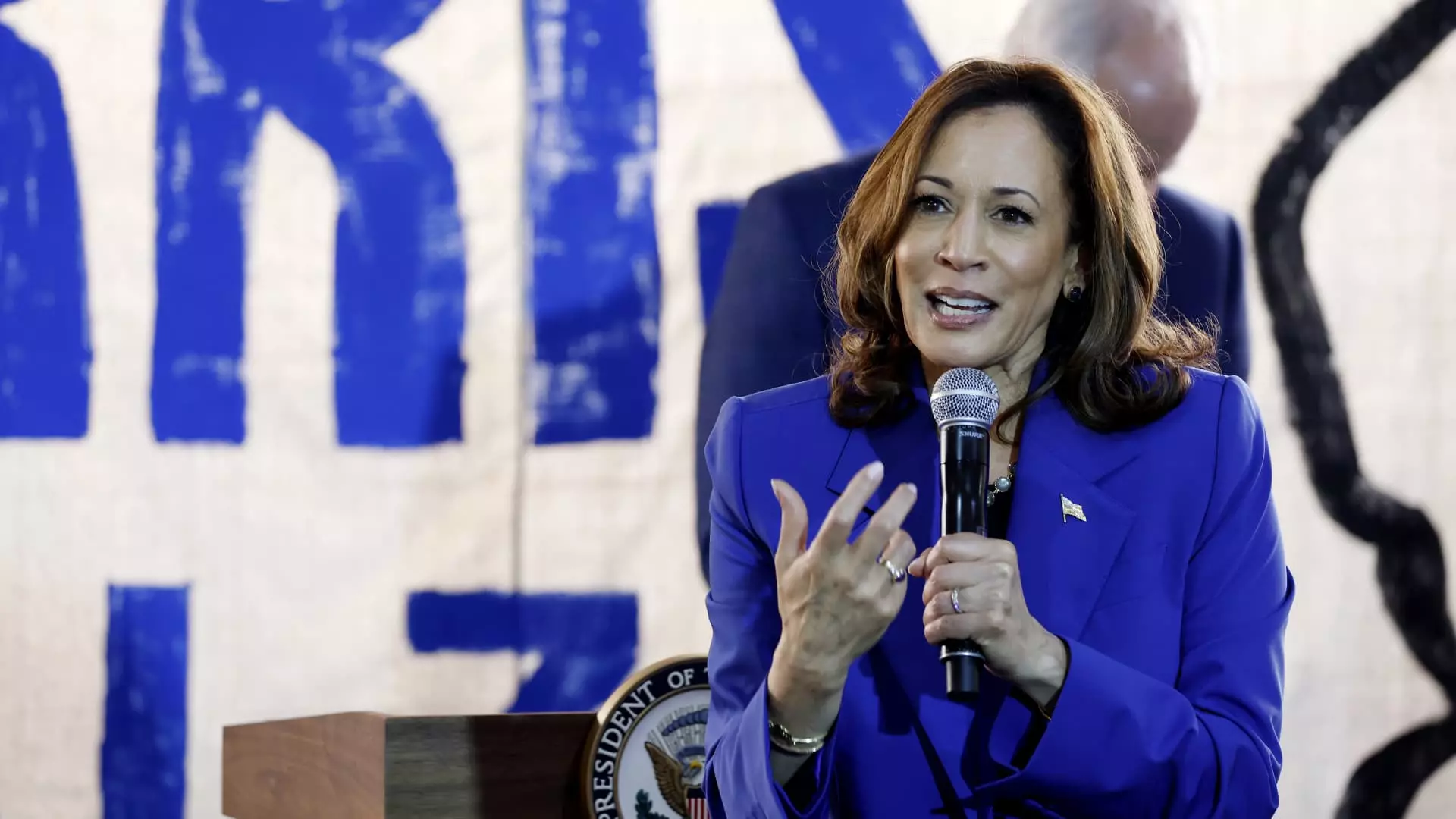In a bold move aimed at generating substantial revenue, Vice President Kamala Harris has proposed increasing the corporate tax rate to 28%. This initiative marks a key pivot in her economic policy approach as she outlines her vision for America’s financial landscape. The proposal is not merely a financial adjustment; it symbolizes a commitment to economic equity, ensuring that both corporations and billionaires contribute a fair share to the nation’s coffers. Harris’s campaign has framed this increase as a means to reinvigorate the middle class, promising that it will enable working people to gain from the wealth created in the economy.
This adjusted tax rate, if implemented, could yield hundreds of billions of dollars over the next decade. Research from the nonpartisan Congressional Budget Office (CBO) suggests that for every percentage point increase in the corporate tax rate, the government could expect an additional $100 billion in revenue over ten years. By reconfiguring the tax landscape, Harris intends not just to balance the scales of taxation but to provide essential funding for various social programs that would directly benefit the working population.
Harris’s proposal directly counters the 2017 tax cuts enacted by former President Donald Trump, which reduced the corporate tax rate from 35% to 21%. This reduction was hailed as a victory for corporate America, sparking debates about its long-term implications for the economy. Critics argue that these cuts disproportionately benefited large corporations while neglecting the financial struggles faced by everyday citizens. If Harris’s proposal to raise the tax rate comes to fruition, it could signify a corrective measure aimed at restoring equity and investment in public services that foster economic growth.
Trump, now campaigning for a potential return to the presidency, has indicated intentions to further slash corporate taxes. This positions the GOP in opposition to Harris’s revenue-generating proposals, demonstrating a clear ideological divide over fiscal policy. The anticipated economic discourse in Congress will undoubtedly be heated, with Republican lawmakers likely resisting any attempt to roll back Trump’s tax reforms. The contrasting approaches embody a broader narrative about the future direction of the American economy and the values it reflects.
Harris’s strategy is not solely focused on taxation; it extends to funding ambitious plans aimed at uplifting the middle class. Her push to expand programs like the child tax credit and alleviating the financial burdens associated with housing and medical expenses reflects a holistic approach to economic recovery. However, critics have pointed out that while Harris advocates for these measures, the specifics regarding costs and funding mechanisms remain vague. Without clearly defined financial frameworks, skepticism around the feasibility of these initiatives will linger.
With the Democratic National Convention underway, Harris faces the dual challenge of crafting a cohesive economic narrative while addressing the pressing need for fiscal responsibility. By aligning her corporate tax proposals with President Biden’s recent budget suggestions, she not only reinforces her party’s commitment to a balanced fiscal strategy but also positions herself as a pragmatic leader prepared to confront head-on the realities of Congressional negotiations.
Potential Political Dynamics Ahead
For Harris, navigating the complexities of tax legislation will require solid Democratic support in both the House and Senate. The expiration of various provisions of Trump’s tax cuts at the end of 2025 presents an opportunity for effective negotiation, potentially compelling Republicans to engage amicably in discussions about tax policy. As both parties prepare for a battleground over which tax policies to renew, Harris could leverage this moment to push for her proposals.
The clash of ideologies is set to intensify, with Trump suggesting that failure to renew his tax cuts would jeopardize economic stability. This prediction underscores the significance of tax policy in shaping the political landscape, illustrating how economic decisions can resonate through various sectors of society, directly impacting American families and businesses alike.
In essence, Harris’s proposition for a 28% corporate tax rate embodies a critical moment in American fiscal policy. It emphasizes the need for a fairer economic system, intent on investing in the nation’s working class while stirring the pot of political dialogue on the future of taxation in America. As the debate unfolds, the American populace will remain a watchful audience, hoping that their economic realities are central to these discussions.


Leave a Reply